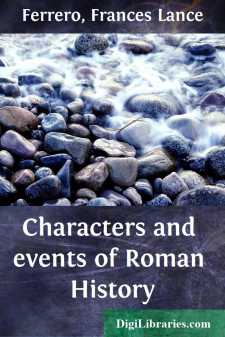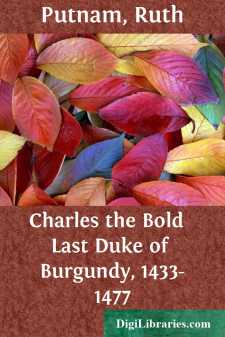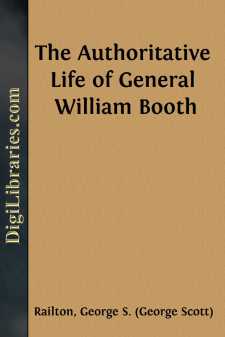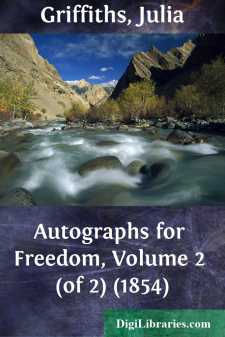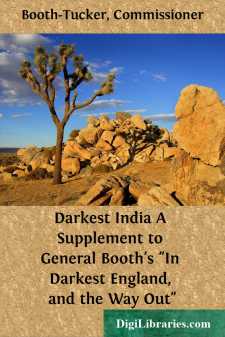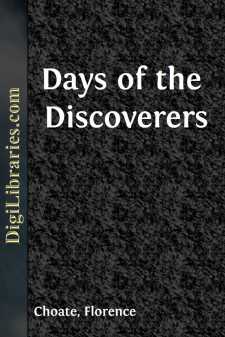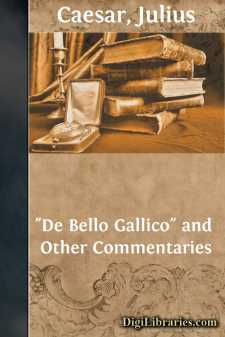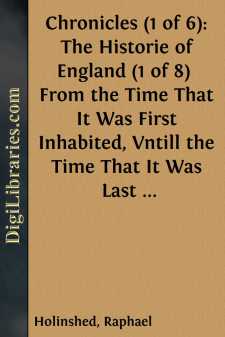History
- Africa 30
- Americas (North Central South West Indies) 50
- Ancient 68
- Asia 58
- Australia & New Zealand 8
- Canada 41
- Caribbean & West Indies 1
- Civilization 20
- Eastern Europe 12
- Europe 310
- Expeditions & Discoveries 60
- General 77
- Historical Geography 1
- Jewish 9
- Latin America 3
- Medieval 8
- Middle East 13
- Military 248
- Revolutionary 8
- Study & Teaching 5
- United States 353
- Western Europe 56
- World 13
History Books
Sort by:
"Corruption" in Ancient Rome And Its Counterpart in Modern History Two years ago in Paris, while giving a course of lectures on Augustus at the Collège de France, I happened to say to an illustrious historian, a member of the French Academy, who was complimenting me: "But I have not remade Roman history, as many admirers think. On the contrary, it might be said, in a certain sense, that I...
more...
by:
Ruth Putnam
CHAPTER I CHILDHOOD 1433-1440 On St. Andrew's Eve, in the year 1433, the good people of Dijon were abroad, eager to catch what glimpses they might of certain stately functions to be formally celebrated by the Duke of Burgundy. The mere presence of the sovereign in the capital of his duchy was in itself a gala event from its rarity. Various cities of the dominions agglomerated under his sway...
more...
Chapter I Childhood and Poverty William Booth was born in Nottingham, England, on April 10, 1829, and was left, at thirteen, the only son of a widowed and impoverished mother. His father had been one of those builders of houses who so rapidly rose in those days to wealth, but who, largely employing borrowed capital, often found themselves in any time of general scarcity reduced to poverty. I glory in...
more...
CHAPTER I INTRODUCTORY Everybody who reads this book through will wonder that a man who ought to be able to tell so much has really told so little. I have known personally and quite intimately, or have known intelligent and trustworthy persons who have known personally and quite intimately, many men who have had a great share in the history of this country and in its literature for a hundred and thirty...
more...
by:
Julia Griffiths
INTRODUCTION. WHAT SOME OF THE BUILDERS HAVE THOUGHT. A word oft-times is expressive of an entire policy. Such is the term Abolition. Though formerly used as a synonym of Anti-Slavery, people now clearly understand that the designs of those who have ranged themselves under the first of these systems of reform are of deeper significance and wider scope than are the objects contemplated by the latter,...
more...
CHAPTER I. WHY "DARKEST INDIA?" It is unnecessary for me to recapitulate the parallel drawn by General Booth between the sombre, impenetrable and never-ending forest, discovered by Stanley in the heart of Africa, and the more fearfully tangled mass of human corruption to be found in England. Neither the existence, nor the extent, of the latter have been called in question, and in reckoning the...
more...
by:
Florence Choate
TO FORESTAUpon the road to Faerie,O there are many sights to see,—Small woodland folk may one discernHousekeeping under leaf and fern,And little tunnels in the grassWhere caravans of goblins pass,And airy corsair-craft that floatOn wings transparent as a mote,—All sorts of curious things can beUpon the road to Faerie!Along the wharves of Faerie—There all the winds of ChristendieAre musical with...
more...
INTRODUCTORY NOTE Jean Froissart, the most representative of the chroniclers of the later Middle Ages, was born at Valenciennes in 1337. The Chronicle which, more than his poetry, has kept his fame alive, was undertaken when he was only twenty; the first book was written in its earliest form by 1369; and he kept revising and enlarging the work to the end of his life. In 1361 he went to England, entered...
more...
by:
Julius Caesar
BOOK I I.—All Gaul is divided into three parts, one of which the Belgae inhabit, the Aquitani another, those who in their own language are called Celts, in ours Gauls, the third. All these differ from each other in language, customs and laws. The river Garonne separates the Gauls from the Aquitani; the Marne and the Seine separate them from the Belgae. Of all these, the Belgae are the bravest,...
more...
THE FIRST CHAPTER. What manner of people did first inhabite this our country, which hath most generallie and of longest continuance béene knowne among all nations by the name of Britaine as yet is not certeinly knowne; neither can it be decided frÐâ¦ÐÐ whence the first inhabitants there of came, by reason of such diuersitie in iudgements as haue risen amongst the learned in this The...
more...


